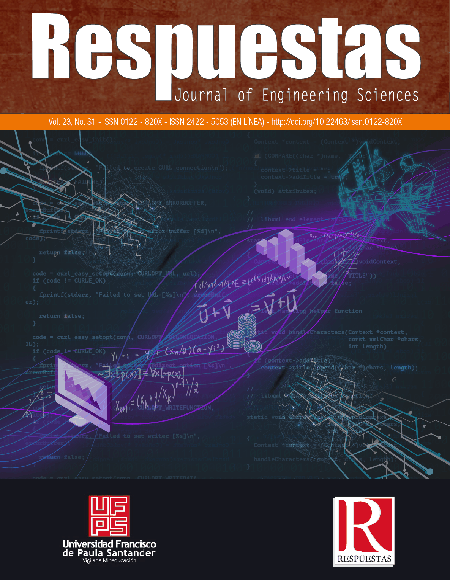Coopetition, Business Management model For Ocaña Mipymes
Coopetencia, modelo de Gestión Empresarial para Mipymes de Ocaña
Main Article Content
The present article was based on the situational diagnosis effected to the micro, small and medium companies Ocaña
(Mipymes), North of Santander, product of the principal investigation, which had as intention promote the growth and
economic development of the Mipymes; for which, a corporation conformed under the model of business management
"coopetencia", in altars of achieving the transformation of his to gesticulate under the social, environmental and managerial
perspective, from Ocaña look as business, innovative, intelligent, enterprising city, diminishing the ecological fingerprint
that for the operation without planning threatens the natural resources and the labor dignity. The applied methodology placed
under the quantitative approach, with a level of descriptive investigation and exploratory research, a documentary and field
design as a tool for information gathering survey to 64 Mipymes the municipality was applied. The principal results showed
that 98% of respondents are unaware of the environmental legal requirements applicable to its economic activity, where the
synergy between employer-employee and its relationship with the environment, so it was evident, the strengths found
concerning highlights administrative and economic process of Mipymes. Finally the need to focus and combine efforts to
organize all the competitive strategies of Mipymes with prospects of business, environmental, safety and health at work
social responsibility, incorporating differentiating factors that allow them to be sustainable, productive and competitive in
looms different markets.
Keywords: Coopetition,Sustainable Development,Economic Globalization,Corporate Social Responsibility
Downloads
Article Details
COPI. (2016). acopi. org. Recuperado en: http://acopi.org.-co/quienes-somos/
Angel, J. L. (2004). Responsabilidad Social y los principios del Desarrollo Sostenible como fundamentos teóricos de la información social de la empresa. Madrid: Esic Editorial, 104.Arias, G. (2004). EL proyecto de investigación. Introducción a la metodología. Caracas: Episteme c.a, 21-22-25-28.
Cámara de Comercio de Ocaña. (01 de 04 de 2015). Boletines cámara de Comercio de Ocaña. Recuperado el 07 de Octubre de 2015, en: http://www.camaraocana.com/CMS/archi-vos/boletin/Abril.pdf
Cancino, C., & Morales, M. (2008). Responsabilidad Social Empresarial. Serie Documento Docente(1), 9-58. DANE. (30 de 06 de 2015). Demografía y Población DANE. Recuperado el 22 de Octubre de 2015, de Proyecciones de población: http://www.dane.gov.co/index.php/poblacion-y-de-mografia/proyecciones-de-poblacion
Guía Técnica Colombiana 180 de RS. (2008). Recuperado el 16 de Abril de 2016, de Icontec: file:///C:/Users/usuario/-Downloads/GTC180%20(1).pdf
Jaramillo, C. (2005). Compettividad. Abya Yala, 253.LaNotaEconómica.co. (19 de 10 de 2010). El mundo de las Pymes. La Nota Económica.co, s/p.
Ley 905. (2004). Recuperado el 20 de Enero de 2015, de Alcaldía de Bogotá: http://www.alcaldiabogota.gov.co/sisjur/-normas/Norma1.jsp?i=14501
Nelebuff, B. J., & Brandenburger, A. M. (1996). Co-opeti-tion (Grupo Editorial Norma ed.). (J. Cárdenas Nannetti, Trad.) New York: Currency Books Doubleday, 28.
Serna, H. (2014). Gerencia Estratégica: Teoría, metodología, mapas estratégicos, indices de gestión, alineamiento, ejecución estratégica (11 ed.). Bogotá: Panamericana, 32-33-43.
Vega, L. (2004). El Estado como Sistema: el enfoque sistémico y evaluación de las políticas públicas. El caso de la política en la formulación, seguimiento ambiental. Bogotá: Ed. Systemical ltda, 104







